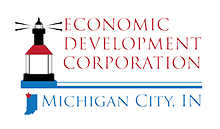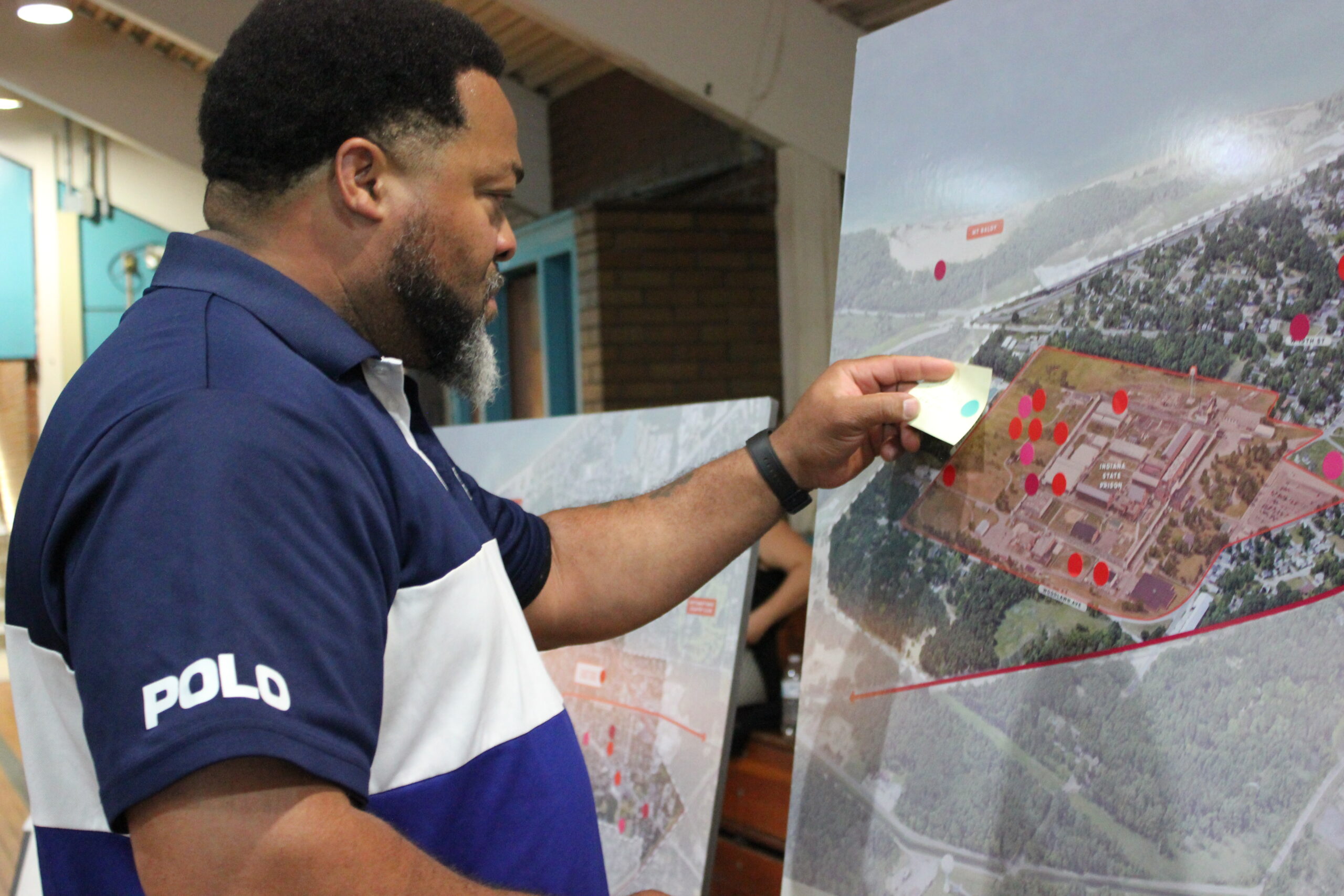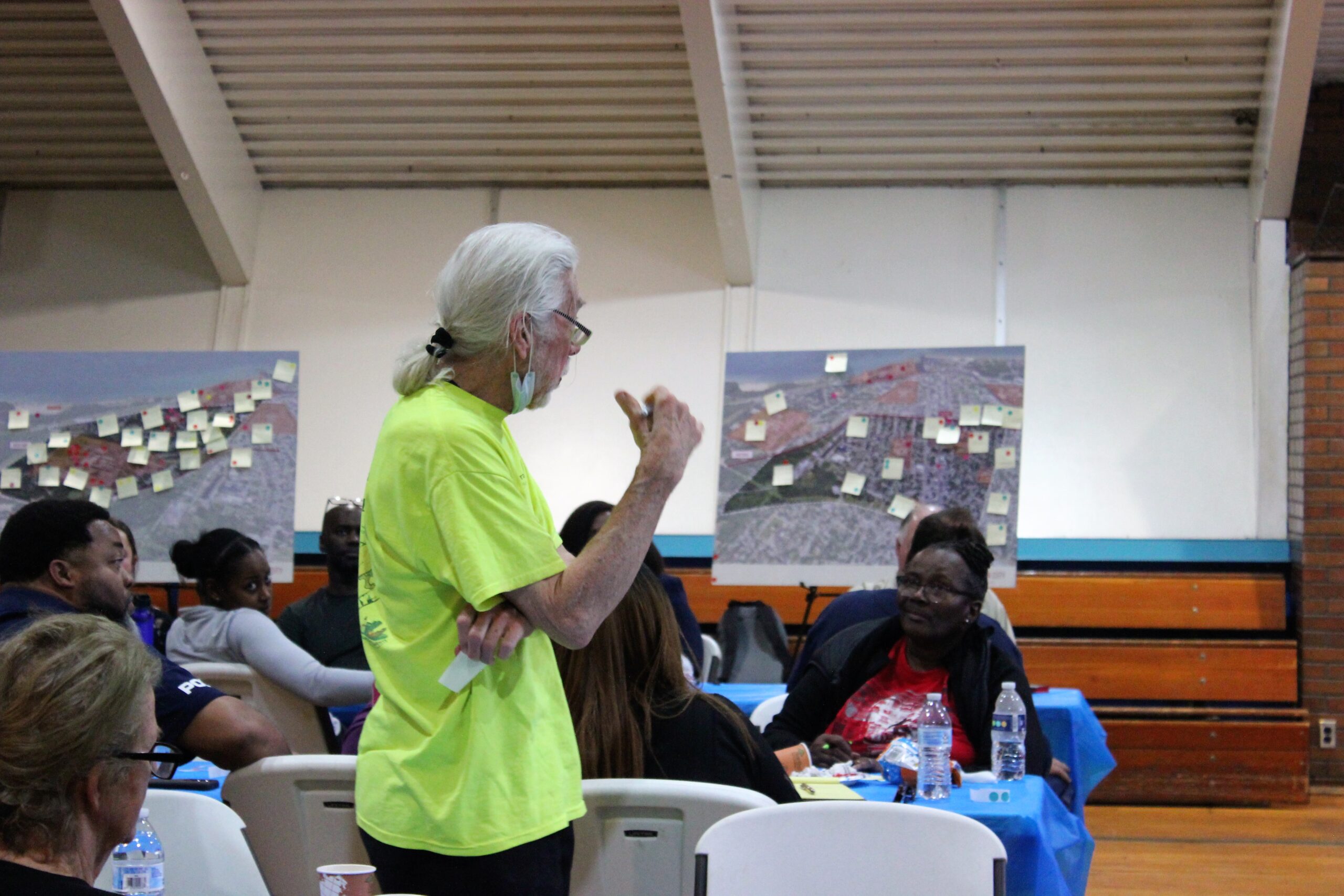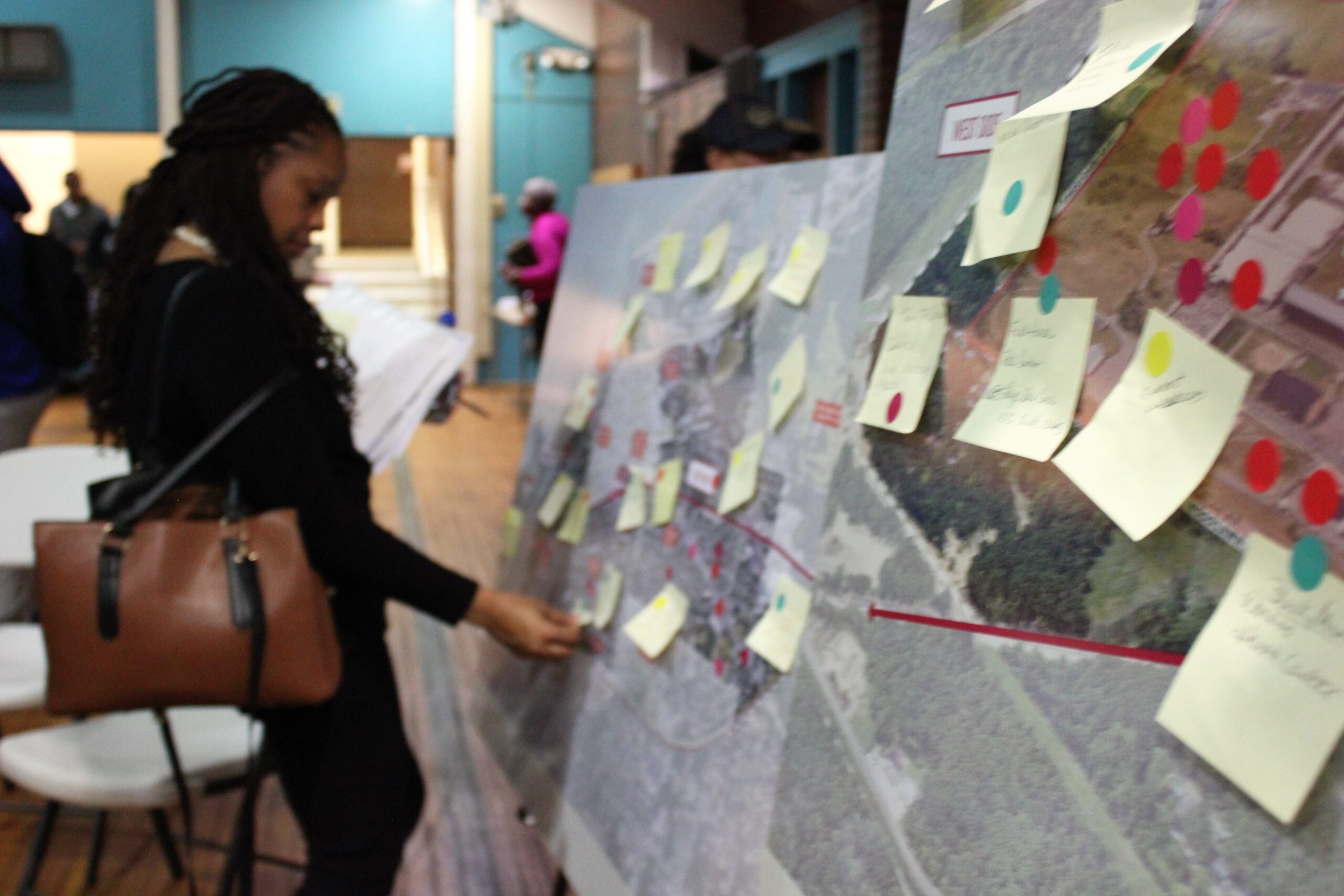MICHIGAN CITY, Ind. – Community members shared insight into igniting a more vibrant Michigan City through economic inclusion during a public input session.
The Community-Centered Economic Inclusion initiative is uniting ideas and perspectives from a cross-section of the city through a coalition advisory team, public feedback, research, data, interviews and more. The year-long Learning Lab is being facilitated by representatives from the Brookings Institution’s Bass Center for Transformative Placemaking and the Local Initiatives Support Corp.
“The goal is to improve the community and economy of identified areas through a local plan based on local ideas,” said Josh Anderson, lead planner at Anderson Bohlander, who facilitated the session. “We want to include what has already been worked on as well as the top priorities, detailed steps and tasks, timeline to accomplish the agenda and who can lead the efforts as nothing will get done if there is no one to spearhead the efforts.”
The Vibrant Michigan City initiative is centering on the Midtown, East and West areas of the city and agenda items are under the umbrellas of: economic ideas, built environment, civic ideas and social ideas.
“These areas will be the foundation of our playbook that is based on core concerns and ideas from the community members who live and work here,” said Clarence Hulse, Executive Director of the Michigan City Economic Development Corporation. “We truly want those involved with this initiative to feel that they have made an impact through their perceptions and viewpoints.”
Attendees were invited to detail strengths, weaknesses and big ideas for the city’s targeted areas through notes and a discussion. Ideas ranged from roundabouts and dog parks to more mom-and-pop stores and youth development centers. The lakefront and new police station were highlighted as strengths as well as the willingness for launching this initiative.
“Summer camps run by the city or parks department would create employment opportunities for our youth and jobs for 14- to 18-year-olds that are more than just fast food,” said community member Chey Rainey. “Obviously us and the people who brought this group together – that they care so much about the community – that’s the biggest strength of all.”
The outcome of the public input session will join the ideas from the 30-plus members of the coalition, focus groups, leadership team and beyond for the final Vibrant Michigan City agenda. The engagement period and information-gathering process is set to run through July 2023.
“This community-centered economic inclusion effort started in larger cities, such as Detroit, Indianapolis and San Diego. This is the first time that the community input process is happening in smaller cities,” Anderson said. “This is a learning lab as we hope to learn from this process and take it across the nation. We want a playbook that will be delivered to small towns everywhere.”
“It is an honor to be at the initial stages of such an innovative and vital process that will not only spur change here, but also across the U.S.,” Hulse said. “We look forward to sharing more with our community as the agenda reveals itself through the hard work of all of our participants.”
The effort is also supported by the Indiana Economic Development Corporation and focused on small cities located in the state of Indiana’s READI program regions. Through READI, 17 regions across the state that represent all 92 counties are moving forward with projects and programs designed to enhance Indiana’s regions for current and future generations of Hoosiers. The collaborative initiative also unites city and regional stakeholders to garner vital input from all corners of each community.
Additional Indiana towns that are participating include Seymour and Warsaw. Each town will develop a CCEI agenda upon completion of the Learning Lab to detail how to address economic stagnation and inequity. These individual agendas will come together into a playbook that will be shared on a national platform to spotlight how rural and small cities can work together to drive economic inclusion and prosperity.





